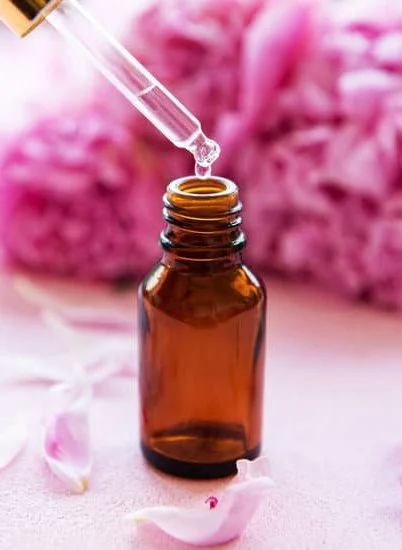How does aromatherapy help sleep? Many people struggle with getting a good night’s rest, and for some, the solution may lie in the power of aromatherapy. This article aims to explore the connection between aromatherapy and sleep, shedding light on how certain scents can promote relaxation and improve sleep quality.
Aromatherapy is a holistic healing treatment that uses natural plant extracts to promote health and well-being. The use of aromatherapy can be traced back thousands of years, with ancient civilizations recognizing the therapeutic benefits of essential oils for both physical and mental ailments. In recent years, there has been a resurgence of interest in using aromatherapy as a natural remedy for sleep issues.
Research suggests that certain scents have the ability to impact brain activity and mood, making them effective tools for promoting relaxation and improving sleep patterns. The science behind aromatherapy reveals that inhaling essential oils can stimulate the olfactory system, which is linked to the limbic system in the brain responsible for emotions, behavior, motivation, and long-term memory. These connections may explain how aromatic compounds can influence our mood and help us unwind before bedtime.
Additionally, this article will delve into the specific essential oils known for their sleep-inducing properties, as well as practical tips on how to incorporate aromatherapy into your nightly routine. Whether you are someone who struggles with insomnia or simply wants to enhance your overall sleep quality, understanding how aromatherapy works and its potential benefits for sleep could be a game-changer in achieving restful nights.
Understanding Aromatherapy
Aromatherapy has been used for centuries as a natural remedy for improving sleep and overall well-being. But what exactly is aromatherapy and how does it work? Understanding the basics of aromatherapy can help individuals make informed decisions about incorporating it into their sleep routine.
What Is Aromatherapy?
Aromatherapy is the practice of using essential oils, which are highly concentrated extracts from the flowers, leaves, or stems of plants, to promote physical and psychological well-being. These essential oils can be inhaled or applied to the skin, and each oil is believed to have specific therapeutic properties.
How Does Aromatherapy Work?
The olfactory system, which is responsible for our sense of smell, plays a crucial role in how aromatherapy works. When we inhale the aroma of an essential oil, the scent molecules travel through the nasal cavity and stimulate the olfactory nerve. This nerve sends signals directly to the limbic system in the brain, which is involved in regulating emotions, behavior, and long-term memory. The limbic system also plays a role in controlling sleep patterns and promoting relaxation.
Aromatherapy is thought to work by triggering certain responses in the brain that can have a calming effect on both the mind and body. Different essential oils are believed to have unique effects on the brain and body, which is why specific oils are often recommended for improving sleep quality.
In summary, understanding aromatherapy involves recognizing its use of essential oils to promote well-being through inhalation or topical application. The science behind how aromatherapy works involves stimulating the olfactory system and targeting the limbic system in the brain. With this understanding, individuals can begin exploring how aromatherapy may benefit their sleep patterns and overall health.
This information serves as an informative guide for those looking for alternative solutions to improve their sleep quality without resorting to medication.
The Science Behind Aromatherapy
Aromatherapy has been used for centuries as a natural way to promote relaxation, relieve stress, and improve sleep. But how exactly does aromatherapy help sleep? The answer lies in the science behind how our sense of smell impacts the brain and our sleep patterns.
The olfactory system, which is responsible for our sense of smell, is directly connected to the limbic system in the brain. This area of the brain is involved in emotions, behavior, motivation, and long-term memory. When we inhale certain essential oils used in aromatherapy, they can have a direct impact on the limbic system, triggering physiological and emotional responses that can promote relaxation and improve sleep.
Some of the ways in which aromatherapy affects the brain and sleep patterns include:
- Regulation of neurotransmitters: Certain essential oils have been found to increase the production of neurotransmitters such as serotonin and dopamine, which are associated with feelings of calmness and well-being.
- Reduction of stress hormones: Inhaling calming essential oils has been shown to lower levels of cortisol, the stress hormone, leading to a more relaxed state conducive to falling asleep.
- Induction of relaxation response: The aroma from certain essential oils can stimulate the parasympathetic nervous system, which is responsible for promoting relaxation and rest.
Incorporating aromatherapy into your bedtime routine can be as simple as using an essential oil diffuser or adding a few drops of your chosen essential oil to a warm bath or pillow spray. With consistent use over time, many individuals find that aromatherapy can be a valuable tool for improving their overall sleep quality. So if you’re struggling with sleep issues, consider giving aromatherapy a try to see if it makes a difference for you.
Popular Aromatherapy Oils for Sleep
Aromatherapy is a natural and holistic approach to improving sleep quality. Essential oils are the key components of aromatherapy, with each oil offering unique benefits for promoting relaxation and deep sleep. When it comes to selecting essential oils for sleep, there are several popular choices that have been found to be particularly effective in aiding restful slumber.
Lavender Oil
Lavender oil is one of the most well-known and widely used essential oils for promoting relaxation and better sleep. Research has shown that lavender oil can help reduce anxiety and stress, which are common culprits of sleep disturbances. Inhaling the scent of lavender oil has also been linked to improved sleep quality, making it a popular choice for those struggling with insomnia or restless nights.
Chamomile Oil
Another popular essential oil for inducing sleep is chamomile oil, which is known for its calming and sedative properties. Chamomile has been used for centuries as a natural remedy for insomnia and anxiety, with studies highlighting its potential to improve overall sleep quality and reduce symptoms of depression. Diffusing chamomile oil or adding a few drops to a warm bath before bedtime can help create an atmosphere conducive to restful sleep.
Frankincense Oil
Frankincense oil is revered for its ability to promote relaxation, reduce stress, and calm the mind, making it an excellent choice for enhancing sleep quality. This ancient essential oil has been used in traditional medicine practices for its soothing properties, which can help quiet the mind and prepare the body for rest. Adding a few drops of frankincense oil to a diffuser or mixing it with a carrier oil for massage can support a peaceful transition into slumber.
These essential oils are just a few examples of the many options available for promoting relaxation and deep sleep through aromatherapy. By incorporating these oils into your bedtime routine in various ways – such as diffusing them, adding them to bathwater, or using them in massage – you can harness their natural benefits to create an environment that supports restful slumber.
As we explore how does aromatherapy help sleep, these oils play a critical role in achieving deep relaxation and improved sleeping patterns.
Using Aromatherapy for Sleep
Aromatherapy is a natural and holistic approach to improving sleep quality. By harnessing the power of essential oils, individuals can create a soothing and calming environment that promotes relaxation and restful sleep. It is important to note that while aromatherapy may not directly cure sleep disorders, it can significantly improve the overall sleeping experience by creating a peaceful atmosphere conducive to rest.
Here are some practical tips on how to incorporate aromatherapy into your bedtime routine:
- Diffusing Essential Oils: Use an essential oil diffuser to disperse calming scents such as lavender, chamomile, or ylang-ylang in your bedroom before going to bed. This can help create a relaxing atmosphere that signals the body and mind that it’s time to unwind and prepare for sleep.
- Aromatic Bath: Add a few drops of your favorite essential oil to a warm bath and soak for at least 15 minutes before bedtime. This can help calm the nervous system and promote relaxation, making it easier to fall asleep.
- Pillow Spray: Create your own pillow spray by mixing water with a few drops of soothing essential oil like bergamot or sandalwood. Lightly mist your pillow and bedding before getting into bed for a calming effect as you drift off to sleep.
By integrating these practical tips into your nightly routine, you can experience firsthand how aromatherapy can positively impact your ability to relax and achieve restorative sleep.
Overall, incorporating aromatherapy into your bedtime routine can be a simple yet effective way to promote better sleep. Whether it’s through diffusing essential oils, taking aromatic baths, or using pillow sprays, there are numerous ways to integrate the power of scent into your nightly regimen.
The key is finding which method works best for you and consistently incorporating it into your bedtime routine for maximum benefit. With patience and dedication, aromatherapy can become an integral part of achieving deep and rejuvenating sleep.
Aromatherapy and Sleep Disorders
Aromatherapy has long been used as a natural remedy for various ailments, including sleep disorders such as insomnia. But how does aromatherapy help sleep? Aromatherapy works by stimulating the olfactory system, which is connected to the part of the brain that controls emotions and memories. This can have a calming effect on the mind and body, making it easier to fall asleep and stay asleep throughout the night.
One of the key ways aromatherapy is believed to help with sleep disorders is through its ability to reduce stress and anxiety. Essential oils like lavender, chamomile, and bergamot have been shown to have sedative effects on the body, promoting relaxation and alleviating feelings of tension or restlessness that can contribute to insomnia.
In addition, certain aromas can also help regulate the production of hormones like cortisol, which is known as the stress hormone, helping to create a more balanced and tranquil state of mind conducive to better sleep.
Furthermore, some essential oils contain compounds that have analgesic properties, helping to alleviate physical discomfort that may be contributing to difficulty falling or staying asleep. For example, oils such as peppermint and eucalyptus have cooling effects that can relieve headaches or muscle tension when inhaled, making it easier for individuals with chronic pain conditions or other physical discomforts to find relief and achieve a more restful night’s sleep.
| Essential Oil | Main Benefit |
|---|---|
| Lavender | Promotes relaxation and reduces anxiety |
| Chamomile | Has sedative effects on the body |
| Bergamot | Alleviates feelings of tension or restlessness |
| Peppermint | Relieves headaches or muscle tension during sleep |
Personal Experiences With Aromatherapy and Sleep
Aromatherapy has been used for centuries as a natural remedy to promote relaxation, reduce stress, and improve sleep. Many individuals have reported positive experiences with using aromatherapy to help them get a better night’s rest. But how does aromatherapy help sleep? The key lies in the impact of certain aromatic compounds on the brain and nervous system.
One way aromatherapy helps improve sleep is by promoting relaxation and reducing stress and anxiety, which are common culprits of insomnia and other sleep disturbances. When the olfactory nerves in the nose detect specific scents, they send signals to the brain, triggering the release of neurotransmitters such as serotonin and endorphins that induce feelings of calm and relaxation. This can help quiet the mind and prepare the body for a restful night’s sleep.
Another way aromatherapy can aid in improving sleep is by helping to regulate sleep patterns. Certain essential oils have been found to have sedative properties that can help individuals fall asleep faster and stay asleep longer. For example, lavender oil has been shown to slow down heart rate and lower blood pressure, creating an optimal environment for deep and restorative sleep.
| Essential Oil | Main Benefit |
|---|---|
| Lavender | Induces relaxation, reduces anxiety, improves sleep quality |
| Chamomile | Soothes nerves, promotes relaxation, aids in falling asleep |
| Sandalwood | Calms mind, relieves tension, encourages peaceful sleep |
Conclusion
In conclusion, aromatherapy has been shown to be an effective and natural way to promote better sleep. By using essential oils like lavender, chamomile, and sandalwood, individuals can create a calming and relaxing environment that can help improve their sleep quality. The science behind aromatherapy demonstrates how certain aromas can impact the brain and help regulate sleep patterns, making it a valuable tool for those struggling with insomnia or other sleep disorders.
Many people have found success in using aromatherapy for sleep, incorporating it into their bedtime routines to create a soothing atmosphere that promotes relaxation. Whether it’s through diffusing essential oils, using them in a warm bath, or applying them topically, there are numerous ways to incorporate aromatherapy into your nightly ritual. Real-life stories of individuals who have benefited from using aromatherapy for better sleep serve as powerful testimonials to its efficacy.
If you’re someone who struggles with getting a good night’s rest, it may be worth giving aromatherapy a try. Not only is it a natural and non-invasive approach to improving sleep, but it also offers additional benefits such as reducing stress and anxiety.
With its proven track record and numerous positive experiences, aromatherapy could be the answer you’ve been looking for to achieve a more restful and rejuvenating night’s sleep. So why not give it a try for yourself?
Frequently Asked Questions
How Does Aromatherapy Work for Sleep?
Aromatherapy for sleep works by using essential oils to stimulate the olfactory system, which then sends signals to the brain that can promote relaxation and improve sleep quality. Certain scents have been found to have a calming effect on the mind and body, making it easier to fall asleep and stay asleep.
What Is the Best Aromatherapy for Sleep?
The best aromatherapy for sleep includes essential oils like lavender, chamomile, bergamot, and sandalwood. These oils are known for their relaxing and soothing properties, and when used in aromatherapy, they can help create a peaceful environment conducive to better sleep.
Each individual may respond differently to specific scents, so it’s important to find the one that works best for you.
Where Do You Put Aromatherapy Oils for Sleep?
Aromatherapy oils can be placed in various locations to promote better sleep. For example, a few drops of essential oil can be added to a diffuser in the bedroom to fill the air with a calming scent.
Alternatively, oils can be diluted and applied topically to pulse points or added to a warm bath before bedtime. Experimenting with placement can help determine what works best for your personal sleep routine.

Are you looking for a natural way to improve your health and wellbeing?
If so, aromatherapy may be the answer for you.





